#Ait Ansari
Explore tagged Tumblr posts
Text
WHERE IS THE FRIEND’S HOUSE?
Boy walks through villages
To return classmate’s notebook
What he does for friends
youtube
#where is the friend’s house#random richards#poem#haiku#poetry#haiku poem#poets on tumblr#haiku poetry#haiku form#poetic#haiku on tumblr#criterion collection#Khane-ye doust Kodjast?#Babek Ahmed Poor#Khodabakhsh Defaei#Iran Outari#Ait Ansari#abbas kiarostami#Ahmed Ahmed Poor#Youtube
0 notes
Text
LES COMPAGNONS ET LES TABI'UN : Partie 3.2
Le père de Urwa ibn Zubayr ibn al-Awwam faisait partie des dix bienheureux à qui le Paradis avait été promis de leur vivant. La grand-mère de Urwa était Safiyya, la tante paternelle du Prophète, et la mère de Asma bint Abou Bakr, qui passa une grande partie de sa vie avec Aïcha. Urwa peut être considéré comme un élève de sa tante Aïcha. Il reçut aussi des enseignements de Sa'id ibn al-Musayyib, qui avait sept ou huit ans de plus que lui.
Urwa était l'un des sept plus grands juristes de son temps. Il transmit la majorité des Traditions rapportées par Aïcha. Il reçut aussi des hadiths de Ali, Omar, Ibn Abbas, Abou Ayyub al-Ansari et beaucoup d'autres Compagnons. De nombreuses grandes figures parmi les générations suivantes, dont Qatada ibn Di'ama, Ibn Shihab az-Zuhri, Yahya ibn Sa'id al-Ansari et Zayd ibn Aslam, rapportèrent des hadiths de lui.
Comme ses contemporains, Urwa était extrêmement pieux. Par exemple, l'un de ses pieds était infecté avec la gangrène et devait être amputé. Lors de l'amputation, il ne se plaignit pas et dit seulement: Nous avons rencontré de la fatigue dans notre présent voyage. (18:62)
Quand l'un de ses quatre fils mourut quelques temps plus tard, il leva les bras devant la Ka'ba et glorifia Dieu: «Ô Dieu, Tu m'as donné quatre membres, deux bras et deux jambes, et quatre fils. Tu as repris l'un de chaque groupe et Tu m'as laissé les trois autres restants. Lounges à Toi par milliers!» Urwa était certainement inclus dans le sens de: Dieu les agrée et ils L'agréent. (98:8)
Muhammad ibn Muslim ibn Shihab az-Zuhri, appelé Ibn Shihab az-Zuhri, rapporta un quart des Traditions Prophétiques venant des Tabi'un. Son père, Muslim, avait lutté contre les Omeyyades, et surtout contre Hajjaj. Par suite, le gouvernement omeyyade le surveillait de près. Contrairement à ce que certains prétendent, il ne soutint jamais les Omeyyades.
Comme d'autres honorés par Dieu en étant parmi les rapporteurs les plus fiables de hadiths, Ibn Shibab az-Zuhri avait une mémoire extraordinaire. Il mémorisa le Coran entier avant d'avoir 7 ans et en seulement huit jours. À 18 ans, il commença à pratiquer l'ijtihad (émettre des jugements sur des questions religieuses ou légales en se basant sur les principes établis par le Coran et la Sounna). Il n'oubliait jamais rien: «Je n'ai rien trahi de ce que Dieu a placé dans mon cœur comme un précieux dépôt.»
Ibn Shihab az-Zuhri reçut sa première éducation de Sa'id ibn al-Musayyib, qui le forma pendant 8 ans. Il fut aussi l'élève de Ubaydullah ibn Abd Allah ibn Utba, l'un des sept plus grands juristes de l'époque. Il consacra toute sa vie au Hadith: «J'ai voyagé sans cesse entre le Hedjaz et Damas pendant 40 ans juste pour le Hadith.»
D'aucuns l'accusent d'avoir flatté les Omeyyades. Ce mensonge est contredit par les faits historiques. Il est vrai qu'il donna des leçons aux fils du calife Hisham. Toutefois, ce n'est pas une faute et cela n'implique pas pour autant qu'il ait soutenu les Omeyyades. Au contraire, il devrait être lou�� pour avoir essayé de guider les futurs dirigeants de la communauté musulmane vers la vérité.
Lors de sa première rencontre avec Ibn Shihab az-Zuhri, le calife Abd al-Malik lui rappela que son père avait soutenu Abd Allah ibn Zubayr dans sa dispute avec les Omeyyades pendant de longues années. Mais Ibn Shihab az-Zuhri ne craignit jamais de dire la vérité aux dirigeants omeyyades.
Certains Omeyyades prétendirent qu'il était fait référence à Ali dans ce verset:
CEUX QUI SONT VENUS AVEC LA CALOMNIE SONT UN GROUPE D'ENTRE VOUS. NE PENSEZ PAS QUE C'EST UN MAL POUR VOUS, MAIS PLUTÔT, C'EST UN BIEN POUR VOUS. À CHACUN D'EUX CE QU'IL S'EST ACQUIS COMME PÉCHÉ. CELUI D'ENTRE EUX QUI S'EST CHARGÉ DE LA PLUS GRANDE PART AURA UN ÉNORME CHÂTIMENT. (24:11) [CE VERSET FUT RÉVÉLÉ À L'OCCASION DE LA CALOMNIE FAITE À L'ENCONTRE D'AÏCHA.]
Cela était naturellement un énorme mensonge prononcé contre Ali. Ibn Shihab az-Zuhri déclara ouvertement dans une cour omeyyade que ce verset faisait allusion à Abd Allah ibn Ubayy ibn Salul, le leader des Hypocrites de Médine. Quand le calife se renfrogna, Ibn Shihab az-Zuhri rétorqua: «Ô sans père! Je jure par Dieu que même si un héraut venant des cieux annonçait que Dieu permettait de mentir, je ne mentirais jamais!»
Bien que Ibn Shihab az-Zuhri défendit Ali contre les Omeyyades, il fut accusé par Ya'qubi, un historien chiite, de fabriquer des hadiths pro-Omeyyades. Abou Ja'far al-Iskafi, un autre historien chiite, clama la même chose contre Abou Houraïra. Selon le faux rapport de Ya'qubi, le calife Abd al-Malik aurait fait réparer la Mosquée d'al-Aqsa' à Jérusalem dans le but d'encourager les musulmans à accomplir les tournées rituelles autour d'elle et non pas autour de la Ka'ba. Il demanda à Ibn Shihab az-Zuhri de fabriquer un hadith à cet effet, ce qu'il aurait prétendument fait: «Il ne vaut pas la peine de voyager [pour prier] sauf vers les trois mosquées: Masjid al-Haram, Masjid al-Aqsa' et ma Masjid (mosquée) ici [à Médine].»
Plus tôt dans ce livre, j'ai argumenté en faveur de l'authenticité de ce hadith. En fait, Ya'qubi s'est lui-même ridiculisé à travers un tel récit insensé, car:
Aucun livre d'histoire juif, chrétien ou islamique n'a rapporté que quiconque aurait fait des tournées rituelles autour de Masjid al-Aqsa' comme cela est fait autour de la Ka'ba.
Le Coran l'exalte et par conséquent les musulmans la révèrent; il n'est nul besoin d'un hadith fabriqué pour en assurer la révérence.
Les califes Omar et Abd al-Malik, Nur ad-Din az-Zanki et Salah ad-Din al-Ayyubi l'avaient tous réparée.
Ibn Shihab az-Zuhri n'aurait pas pu avoir rencontré Abd al-Malik pendant son règne et fabriqué un hadith pour lui à une époque où son propre père (avec Abd Allah ibn Zubayr) se battait contre ce même calife.
Ibn Shihab az-Zuhri n'était pas encore un célèbre Traditioniste à cette époque. Il ne commença à compiler les hadiths de façon officielle que durant le califat de Omar ibn Abd al-Aziz.
Abd al-Malik n'était pas du genre à tenter de commettre une tromperie aussi absurde. Avant son califat, il était très pieux, une autorité dans le domaine du Hadith, et connaissait bien les savants de sa génération. Bien qu'il ne réussît pas en tant que calife, gardant sa réputation précédente de piété parmi les savants, il n'aurait pas pu se rabaisser au point de fabriquer un hadith.
Malgré son absurdité, Goldziher utilisa le récit de Ya'qubi pour calomnier Ibn Shihab az-Zuhri, le premier compilateur officiel des Traditions et rapporteur d'un quart d'entre eux. Les chercheurs «modernes» du monde musulman comme Ahmad Amin, Ali Hasan Abd al-Qadir et Abou Rayya, qui sont des portes-paroles des Orientalistes, répètent les mêmes allégations.
La science du Hadith se fonde sur les piliers les plus sûrs et les plus solides, et ses sources originales sont là pour quiconque veut les étudier. Or, Goldziher et ses acolytes se basent sur des ouvrages folkloriques et poétiques comme al-Iqd al-Farid et Al-Aghani (Chansons), et sur des livres traitant des animaux comme Kitab al-Hayawan. Ces livres, et tous ceux qui leur ressemblent, n'ont rien à voir avec le Hadith et n'ont pas d'approche scientifique.
Ibn Shihab az-Zuhri est l'une des plus grandes autorités du Hadith. Les experts en Hadith les plus en vue tels que Ibn al-Madini, Ibn Hibban, Abou Hatim, Hafiz adh-Dhahabi et Ibn Hajar al-Asqalani, s'accordent sur son autorité incontestable. Il reçut des hadiths de nombreux Compagnons, et beaucoup de savants parmi la première et la deuxième génération après les Compagnons ont rapporté des hadiths de lui.
Beaucoup d'autres Tabi'un mériteraient d'être mentionnés: Aswad ibn Yazid an-Nakha'i, Nafi (qui fut le maître de Imam Malik, fondateur de l'école juridique Malékite), et Tawus ibn Qaysan, qui ne dormit pas pendant quarante ans entre les prières de la nuit et de l'aube. Or, les limites de ce livre ne permettant d'aller plus en détail, nous en resterons là.
#musulman#coran#allah#dieu#islam#se convertir#converti#convertie#revert#reverthelp#equipe reverthelp#converthelp#musulman revert#musulman converti#se convertir à l'islam#islam revert#rappel#prière#salah#dua#prier#musulmane#hiajb#hijabi#muhammad#bienvenu en islam#converti à islam#comment se convertir à islam#religion
0 notes
Photo
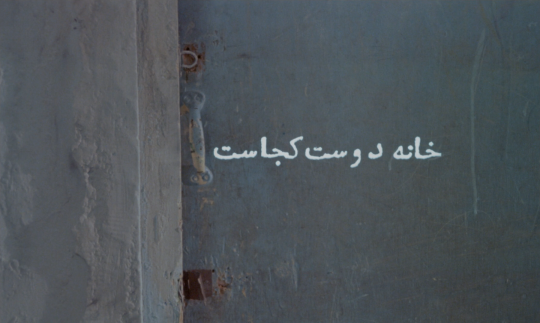


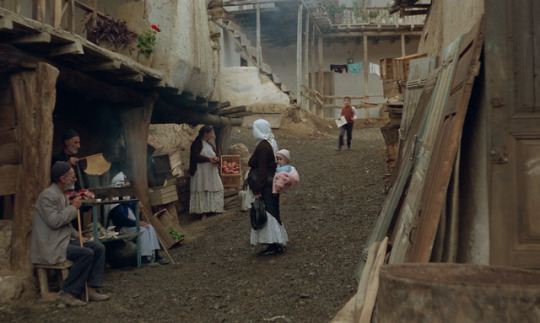
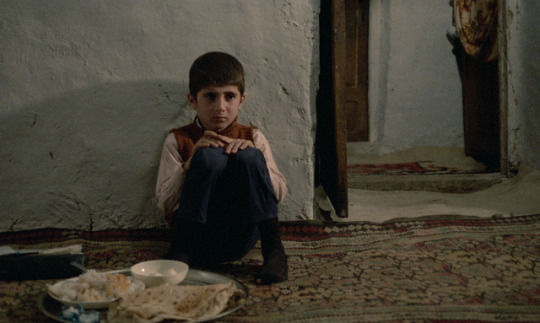
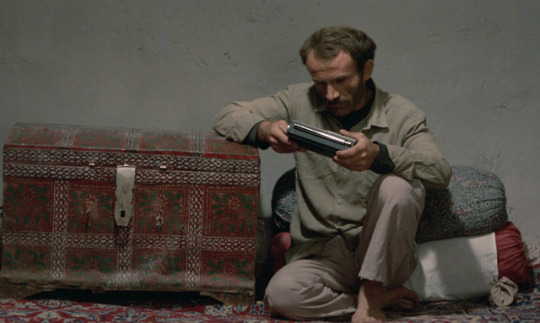
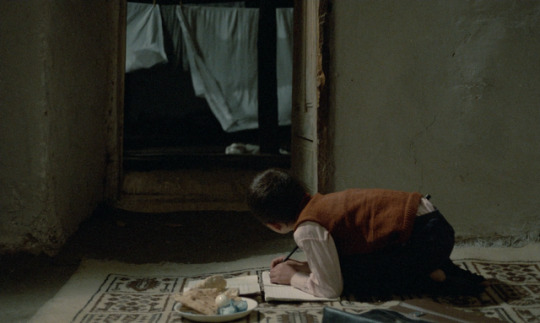
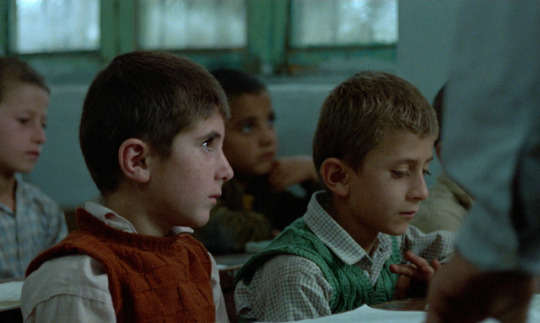
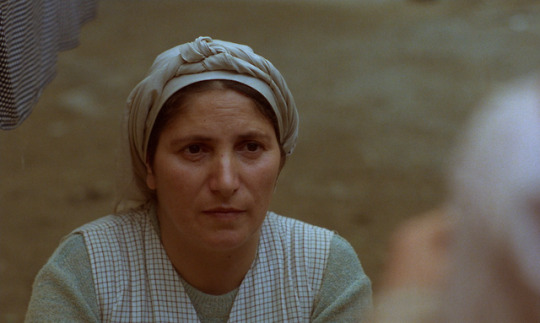
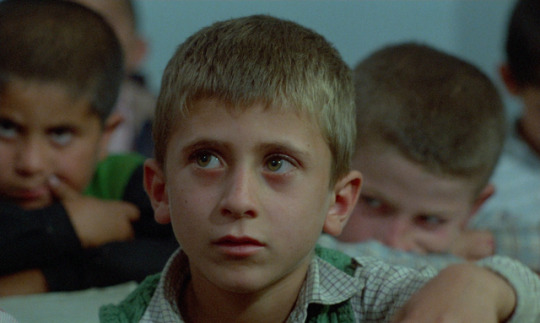
Where is the Friend's Home? (Abbas Kiarostami, 1987)
#ait ansari#khane-ye doust kodjast?#abbas kiarostami#where is the friend's home#iranian cinema#iran#persian
287 notes
·
View notes
Text

Picked up the Criterion boxset of the Koker trilogy.
10.19.19
#watched#film#letterboxd#where is the friend's house#abbas kiarostami#criterion collection#babek ahmed poor#ahmed poor#kheda barech defai#iran outari#ait ansari#sadika taohidi#biman mouafi
2 notes
·
View notes
Photo
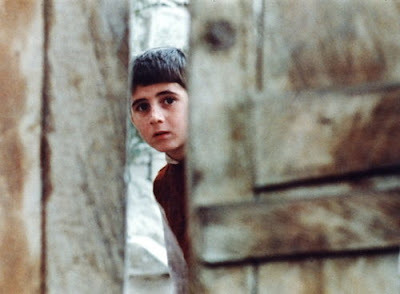
Babek Ahmed Poor in Where Is My Friend's House? (Abbas Kiarostami, 1987)
Cast: Babek Ahmed Poor, Ahmed Ahmed Poor, Khodabakhsh Defaei, Iran Outari, Ait Ansari, Sadika Taohidi, Biman Mouafi, Ali Djamali, Aziz Babai, Rafia Difai. Screenplay: Abbas Kiarostami. Cinematography: Farhad Saba. Film editing: Abbas Kiarostami. Music: Amine Allah Hessine.
I think Dickens would have liked Abbas Kiarostami's Where Is My Friend's House? It deals with one of Dickens's great subjects: the anomalous place of children in an adult world that often doesn't even hear or see them or recognize them as human beings with their own problems and concerns. It's the story of 8-year-old Ahmed (Babek Ahmed Poor), who goes to school in the village of Koker. One day the teacher berates the boy who sits next to Ahmed, Mohamed Reda (Ahmed Ahmed Poor), because he has done his homework on a piece of paper and not in the prescribed notebook. It's the third time Mohamed has done this, the teacher scolds, and the next time he'll be expelled. We can see Ahmed wincing at the treatment of Mohamed, and after school he helps the boy when he stumbles and drops his schoolbooks. When he gets home, Ahmed discovers that he has accidentally picked up Mohamed's notebook and is horrified that this means the boy will be expelled. He tells his mother that he needs to take the notebook to his friend, but she's preoccupied with doing the wash and tending to the baby, so she tells him to do his homework first and then to pick up the bread for dinner. Perplexed, Ahmed tries to do his homework but his mother keeps interrupting him to help with the baby or to carry the washbasin, constantly dismissing his insistence that it's important that he deliver the notebook. Finally, he seizes the opportunity to leave, but he knows only that Mohamed lives in the neighboring village of Poshteh, which is over the hill from Koker. So he races up the zigzag trail that takes him over the steep hill and down through the olive grove that lies outside the village. He knows Mohamed's family name is Nematzadeh, but there are lots of Nematzadehs in Poshteh, and he doesn't know which branch of the family is his friend's. Finally, he gets a lead and is told that Mr. Nematzadeh and his son have just set off for Koker. So he races back over the hill, only to be delayed in his search by his own grandfather (Rafia Difai), who sends Ahmed off to fetch his cigarettes. While Ahmed is running this errand, the grandfather expounds his theories of child-rearing to a friend: His own father, the grandfather says, would give him some money and a beating every other week, whether he deserved it or not. Sometimes, he admits, his father would forget the money, but he always remembered the beating. This, the grandfather proclaims, taught him the discipline and obedience that children today like Ahmed don't learn. Meanwhile, Ahmed, who is struggling to fulfill what he sees as his duty to his friend and his family, has learned that the boy who accompanied Mr. Nematzadeh was not Mohamed, and that the man has just started back for Poshteh, riding on a donkey. So Ahmed makes another trip over the hill, keeping Nematzadeh in sight and following him into the labyrinthine streets and alleys of Poshteh, only to discover that he has the wrong branch of the family after all. Eventually, after another misadventure, a despondent Ahmed returns home, finishes his own homework, and copies it into Mohamed Reda's notebook, which results in a well-earned happy ending. It's an excellent movie for children, but beside that, Kiarostami's screenplay, direction, and editing, and his empathy with the people and landscape of Northern Iran bring everything together into a fable about miscommunication and the difficulties of growing up. It's not as ambitious or complex as some of Kiarostami's later films, but it has their depth of feeling and brilliance of execution.
1 note
·
View note
Text
Les ornements qui ornent la couronne de la reine Elizabeth de Bretagne sont volés et pillés
● Le premier diamant Koh-i-Noor faisait partie de la couronne du sultan musulman moghol « Jihan Sultan » avant d'être porté par plusieurs sultans en Inde avant d'être acquis par la Grande-Bretagne après que le roi du Pendjab ait été tué et occupé l'Inde en 1849 et Ind ia a continué à demander pour le bijou jusqu'à récemment l'a abandonné.
● Le rubis rouge est l'un des joyaux du prince "Abi Saeed Al-Ansari" des rois de Grenade, "Pedro le Terrible" roi de Séville l'a tué traîtreusement après l'avoir hébergé pour obtenir ses bijoux.
Puis l'un des frères de Pedro s'est rebellé contre lui, alors il s'est réfugié auprès du prince anglais Edward Woodstock, et ce dernier a offert l'assistance militaire nécessaire conjointement pour obtenir le rubis rouge, il a donc eu ce qu'il voulait après.
● Massa Colnian, le creuseur britannique, a été extrait en 1905 d'une mine en Afrique du Sud et les Africains ont été asservis pour creuser cette mine et des centaines d'entre eux sont morts dans sa fosse.
Elizabeth est une personne avec une histoire impure, persécute les pauvres et une criminelle d'un grand gang qui s'inquiète de piller les primes des pauvres
Sources :
https://www.scmp.com/magazines/style/luxury/article/3144106/queen-elizabeths-most-sentimental-jewellery-her-diamond
https://www.smithsonianmag.com/history/true-story-koh-i-noor-diamondand-why-british-wont-give-it-back-180964660/
https://www.independent.co.uk/news/uk/home-news/india-sues-the-queen-for-return-of-stolen-ps100m-kohinoor-diamond-a6725951.html

1 note
·
View note
Quote
# #Invite Friends to #Like #Freedom #Coding Mikaiul El Invite أبو احمد Invite Sevi Zazi Invite Hamouda Ratib Invite Sunday Ogbonnaya Invite Aaron Yin Invite Mohamed Barki Invite Chris White Invite Mohamed BahssainMohame Invite Rita Bennani Invite Abdourabbih Abdou Invite Amit Erandole Invite Ismail Shaikh Invite Oussama Albaz Targi Invite Sofy Dido Invite Youness Nouioura Invite Francis Sunday Invite Abdelhak Rbibe Invite 杨伟超 Invite Melbin Chicas Invite Hicham Tikota Invite Abdellah Bouchamama Invite Nicholas Beaudoin Invite Brahim Boukhris Invite Damian Simon Peter Invite Mhdazks Kouis Invite Rama Makavana Invite Choky Choky Invite Nasrullah Bin Sulaiman Invite Daven Prince Invite Edwards Laura Invite Joshua Jackson Invite Erasmo Gonzalez Invite Mathew Raymond II Invite Fouzia Maskri Invite Simohamed Moumni Invite Azeddine Belatik Invite الحياة أمل Invite Abdfettah Sersar Invite Mohamed Bargaoui Invite Chinna Vemula Invite Hassan Alaoui Invite Ali Drb Invite Lotfi Hsini Invite Sven Ralf Tim Invite Soufian Solano Invite Abderrahim Hmimsa Invite Youssef Mehdi Invite Don Lahoucine Goghrod Invite Rida Hssani Invite Hassan Tahiri-Alaoui Invite Sandi Daluz Invite Abdelkader Ez Zarouhy Invite Obodugo Rapheal Invite Joseph America Invite MãnSoûr YoúSééf Invite Richard Warfield Invite Dennis Müller Invite 황선주 Invite Bachir Haddad Invite Khammar Watani Invite Ujang Bima Invite Lina Badr Invite Austin Heisley-Cook Invite Muhammad Irfan Khan Invite Marie Laurence Delmas Invite Azouina Saad Invite أحمد الوزاني الإدريسي الحسني Invite حليمة حلومة Invite Yanto Julianto Invite Charo Serrano Invite Abdelrhani Ett Maghribi Invite Tom Richardson Invite Evelin Olofsson Invite Mohammed Zakaria Alaoui Invite Alami EL Barche Invite Khalid Ahmane Invite Esseddik Nassiri Invite Moulay Omar Khayyi Invite Hicham Sophie Invite Al Ben Omar Al Invite Aymen Ameur Invite Achraf Hassan Invite Jackson Jackson Invite A A AKay Ansari Invite Attaellah Allali Invite Teddy Alfred Invite Muhammed Nagy Invite Azize Alaoui Invite Alahyane Malika Agadir Invite Adam Mahere Invite Tarik Abdaoui Invite Najat Zinane Invite Fatima Zahrae Invite Ahmed Khatib Invite عبد الرحيم خالص Invite ELarbi ELarbi Invite Kouakou François Kouassi Invite Ayman Harrandou Invite Miloud Mokdad Invite Sikander Shahab Siddiqui Invite Qaisar Manzoor Invite Fidel Murhabazi Invite Falana Opeyemi Abibulabhi Invite محمادي الثوري Invite Asouma Benani Kadiri Invite Charafa Belkhayat Zouggari Invite الحريري ادريس Invite Shamim Khan Invite Vincent de Cohem-Camberny Nouveau Invite Muzaffar Umer Invite Ayoub Harrandou Invite Lamia Lolo Invite Mohammed Badi Invite Javed Akhtar Invite Elisa Candace Karin Invite น้องแอน น๊ะค่ะ Invite Mohamed Benamar Invite Adil Amrani Invite Yassine Rachdi Invite Aswatnews Laayoune Invite Moulay Driss Dachri Invite الكاتب محمد غانم Invite اسماء حسن Invite Prince Adewole Invite غيور على بلادي المغرب Invite Nabila Soraya Invite Hicham Achouih Invite শাহিন খান Invite Abid Hussain Bhatti Invite Mohammed Kili Invite Lorena Farmer Invite Roberto Smith Invite جمال الجاموس Invite Alejandro Nightwolf Invite Said Alami Invite Samira Elabd Invite Hisham El Bedraoui Invite Wissem Louhichi Invite Alhkim Baro Invite Hake Make Waist Invite حسناء الماخوخي Invite CB Fernando Blanco Invite Hassan Sahraoui Invite Sophie Lgd Invite Sophy Elwakil Invite ياربي ترجعلي خويا دغيا Invite Mohamed El Haddad Invite Hafid Mofdi Invite Mohamed Nachrah Invite Mohamed Ouadie Invite Moulay Hmad El Alaoui Invite Kalid Labkire Invite Eltayar Madinaty Invite Febrian Lana Yusuf Invite Majd Diouri Invite Naim Ramir Invite محمد ابوالفرح Invite Alexandra Trevor Lowrie Invite Shakir Ahmed Invite Abdelhafid Djebbar Invite Abd Essamad Nassiri Invite Rajesh Mandavriya Invite Naseer Izzy Ishaq Invite Jaydev Shiroya Invite M Bilal Rao Invite البدري سمير محمد Invite Saad Alaoui Invite Najib Bantajouat Invite Morad Robio Invite Selma De Invite Andi Kaka Invite Abdedaime Elmabrouk Invite Gaetano Carponi Invite Prosen Bawali Invite Nina Nisrin Invite Mohammed Yassine Ait Khali Invite Donnie Goodman Invite Pham Thuong Invite نور احمد الدواد Invite Rahal Zarktouni Invite Nassima Ghazoini Invite Mike Johns Invite Betok Ardiansyah Solegar Invite Mohamed Nafras Invite Pharaon Zaza Viellady Invite Ìñżmâm Jâņjűà Invite Raja Sreenivasan Invite Mohmed Hadochi Invite Abdelmalek Bennaceur Invite Abdellah Ouafi Invite Usman Khan Invite Anaya Shah Invite Ali Oumertou Auneau Ali Invite Ahmed Boukorro Invite Deborah Paule Glouai Invite Javed Iqbal Invite Chouaib Ziraoui Invite Fatima Zahra Nachit Invite Bomata Tamk Mauloud Invite Inamorado Enamorado Piligrosso Invite Abd Al Halim Halim Invite Maazo Yao Invite Ogbonna Agwu Invite Mohamad Riyadi Invite Omar Mazroua Invite Paa Qwesi Invite Mohammed Said El Bahraoui Invite Cherif Chebihi Hassani Invite Rae Stephen Invite Ouael Ch Invite Said Mehdi Invite مهبول السبب المعقول Invite A Rauf Samad Ch Invite Michael Lawson Invite Adriano Berdasco Invite Sardar Goga Dogar Invite Mino Mimo Invite Ryme Benabas Invite Mohamed Ben Omar Invite Rabie Mehdi Invite Hjr Nadi Invite Abdo Mohib Invite Johnny Jerônimo Dreemurr Invite Med Benayiba Invite Tarek Essafi Invite Amira Az Invite Az Ayat Invite Monick Liaison Hassam Levi Invite Henry Cabello Invite Laurence Svekis Invite Michelle Goodfellow Invite Brahim Brahim Soudani Invite Muhammad Shakeel Invite Banabas Ogar Invite Luara Rich Invite Nadia Boudreau Invite MD Lassika Abbad Invite Amjad Bukhari Invite Imran Jamal Invite Noman Mannan Invite Farrukh Matin Invite Irfan Zuberi Invite Farhaj Ahmed Invite Khushal Khan Kakar Invite Orjiewuru Kingdom Isaac Invite Rasheed Ridwon Invite Ko Zaw Invite MaAnon Fawkes Invite Abdul Samii Ajala Invite via http://ift.tt/2t4J4iV from WordPress http://ift.tt/2t5rzyF via IFTTT
http://barki-mustapha.blogspot.com/2017/06/june-24-2017-at-0217am.html
0 notes